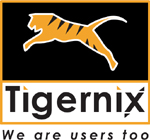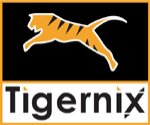Recently, Australia withdrew from hosting the Commonwealth games in Victoria, due to overlapping budgetary caps set on their financial predictions for the game. According to reuters.com, an exceeding a budget from $ 1.8 Billion to more than $ 4 Billion is something that Australia had to consider more and very seriously. That is why you need to expand event planning missions with new technology.
Could the Commonwealth event’s budget have remained within its previously estimated amount if the suitable technology were integrated? Let us find answers for them in our latest blog article.
Why Did Australia Decide to Cancel Commonwealth Games

Australia’s commonwealth budget went up around $3 billion due to various expenses they predicted last year. The government did not want to hold this event taking funds from essential allocations such as education and health. According to economic experts, the total revenue generated by hosting the event will not cover the bloating investment and expenditure.
Victoria’s decision to withdraw raises the possibility that the Games may not take place for the first time since being cancelled due to the Second World War. However, Australia is not the first country in the world to withdraw the from hosting the event due to budget-exceeding issues. South Africa refused to host the 2022 Commonwealth Games due to the same reasons and Birmingham stepped in as the host for it.
Top 8 Ways Commonwealth Games Budget Could Be Reduced

AI-driven Predictive Analytics for Infrastructure Management
When there are concerns about reducing the costs of the events, the number one technology that can be implemented is AI-driven predictive analytics for infrastructure management. Through this integration, the organisers and engineers can look into the historical data and real-time data of the infrastructures. The application of AI models and their advanced algorithms could easily inspect the potential threats to the infrastructure and point out them in advance.
This is a beneficial proactive technological approach that allows the relevant authorities to plan out their constructions and address maintenance requirements. It also enables the capacity to prevent unexpected downtime and costly breakdowns. AI-driven predictive analytics leads the way to optimise resource allocation which will result in effective and efficient employment of manpower and tools. This ultimately will result in reducing the costs of those construction projects. Offering predictions about resource demands and usage patterns is beneficial for planners to avoid over-provisioning which ultimately results in cost savings.
IoT Interconnectivity
IoT technology employs a network of interconnected technologies and sensors to offer real-time data on a variety of event-related factors, such as power consumption, crowd movement, and facility capacity. Gathering all the information floating through the interconnected technologies, the IoT software can provide useful insights for the planners. With the help of these data-driven methods, organisers of the event can efficiently manage utilities, implement energy-saving strategies, and optimise resource allocation, which lowers operational costs.
Also, IoT-enabled monitoring and predictive maintenance aid in avoiding expensive repairs and interruptions by preventing equipment failures and downtime. The IoT network’s smooth information flow enables organisers to make sensible choices, increase productivity, and assure cost-effective management, resulting in a successful mega sporting event.
Integrated CCTV Technology for Safety Concerns
When holding a grand sports event like the Commonwealth, the safety of the participants and the spectators is one of the number one concerns of the organisers which they spend millions of money to take security measures. This process can be streamlined with the utilisation of CCTV-driven visual analytics technology which permits a compelling opportunity to cut costs in the budget.
When CCTV technology is integrated with visual analytics, it gives a full picture of the crowded areas, traffic flow, and the areas that need to be sure immediately. If there are any potential security threats and crowd congestion occurring, this software can inform you in advance. This way planners can reduce the cost for the security firms and unnecessary manpower at the event premises.
Holding Planning Meetings Via Communication Apps
A great way to cut the Commonwealth Games costs is to conduct planning meetings using communication applications. Without spending travel costs, organisers can bring together authorities from different regions by using communication applications like video conferencing platforms and collaboration tools. These apps enable real-time conversations, file sharing, and decision-making, facilitating fluid communication.
While avoiding the need for physical meetings and their accompanying expenditures, planning teams could efficiently coordinate work, swiftly resolve problems, and maintain alignment on event objectives. Adopting virtual planning meetings boosts output, improves communication, and makes the best use of resources, making it an economical and environmentally responsible way to guarantee the success of the Commonwealth Games while staying within a budget.
Virtually Finding Errors of Grounds
Utilising advanced technology such as sensors, digital twins and simulation is the best approach to reduce the costs of such mega sporting events effectively. When the sensors are attached to the grounds that are being deployed for the events, the grounds’ condition, temperature, and structural integrity can be inspected in real-time. Through digital twin planners of the event can easily generate a replica of the actual information utilising this information. That is where the simulation technology comes in and it points out the weaknesses and errors.
When the irregularities and errors are identified in advance, it will be a beneficial way to address them before beginning the physical construction of the stadiums and pavilions. This technological approach will save millions of money and eliminate unnecessary expenses. Since this software enhances efficiency through seamless integration, it will help the organisers to stay within the estimated budget without compromising on quality.
Handling Accommodation of Participants Through Apps
If organisers make use of cutting-edge accommodation management systems and Internet booking platforms, they could accelerate room allocation, negotiate reasonable prices, and ensure effective utilisation of the available lodging. The athletes and the other participants can be accommodated in the closest hotels to the grounds that will hold their events.
The reservation process is made simpler, administrative expenses are reduced, and real-time occupancy data is provided, allowing for improved resource allocation, due to this software-driven approach. A successful and cost-conscious event could be achieved with enhanced accommodation management, which will result in considerable cost savings for the Commonwealth Games while guaranteeing a smooth and comfortable stay for participants.
Increasing Volunteer Opportunities
Promoting higher volunteer participation can reduce the need for paid workers and associated expenditures. This can also be done with the aid of a smartphone application. Following the registration of those who wish to serve as volunteers, the authorities can assign duties using the same app. Volunteers can assist with a variety of event operations, including crowd management, office work, and event setup, which can make events run more smoothly.
It also fosters a sense of community involvement and support for the Games when enthusiastic and dedicated volunteers participate. With careful recruiting and training, organisers could efficiently use resources, enhance event logistics, and successfully execute the Commonwealth Games while operating below a tight budget, creating an event that volunteers, participants, and spectators would all remember.
Replacing Delegates with Attendee Accessibility Tools
An innovative approach to cutting the Commonwealth Games budget is to swap out delegates for attendee accessibility tools at sporting events. Administrators can offer virtual attendance alternatives for delegates, removing the requirement for physical presence and related travel costs, by supplying cutting-edge technology and digital platforms. Remote participation is made possible by attendee accessibility solutions, allowing delegates to participate in forums, meetings, and event sessions online.
This not only lowers expenses but also broadens the event’s scope internationally, encouraging diversity and collaboration. The Commonwealth Games can optimise financial allocation, improve accessibility, and provide a successful and significant event that effectively meets the requirements of all participants by embracing such technology-driven solutions.
Bridging New-Era Technology to Cost-Cutting

It is not necessary to walk away from great opportunities when you can adjust to the desired budget in more innovative and creative ways. New technology is invented to make things easier for people and you need to take the maximum advantage of it. However, the key point of this article is promoting the ability to implement the right strategies at the right time.







